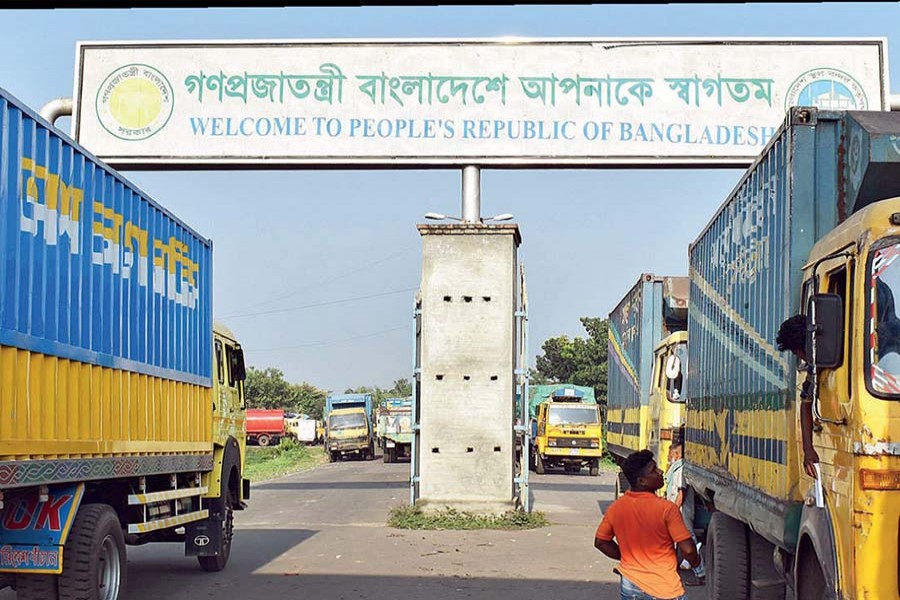Non-tariff barrier supply-side constraint, and logistics were identified by the experts as key barriers to explore the true potential of Indo-Bangladesh bilateral trade.
They were addressing a dialogue on ‘50 years of partnership between Bangladesh and India’ jointly organised by the centre for the policy dialogue (CPD) and Research and Information System for Developing Countries (RIS) of India held in Dhaka on Wednesday.
In his introductory remark Professor Rehman Sobhan recalled the early days of the formation of Indo-Bangla trade and economic cooperation saying that structuring trade ties between the countries, joint river commission were the main agenda during the economic consultations between the top policymakers of the two countries.
He noted that the Indian supply of food and essentials for war-torn Bangladesh, despite its own problem was a rare example of love towards neighbour.
Professor Sobhan pointed out that after the assassination of Bangabandhu, a long phase of negativity gripped the ties between the two countries.
State Minister M Shahriar Alam in his speech urged India to withdraw the non-tariff barrier and other impediments to remove trade imbalance. He also hoped that the pending water issues will be resolved soon.
‘Bangladesh’s export to India was 0.3 billion US dollars in 2011, but after Bangladesh was granted duty-free market access by India that year, its expert to India rose to 1.0 billion dollars by 2018,’ said Professor Mustafizur Rahman of the CPD.
Citing the recent trend, he said, the export of Bangladesh to India may cross $2.0 billion in the current fiscal year.
Prof. Mustafiz also pointed out that supply-side constraints impeding the bilateral trade between the two countries.
In this connection, he mentioned that sending goods to Delhi was more expensive than sending goods to an African destination.
He stressed the need for simplification of the cross-border trade procedure and infrastructure development for luring Indian investment in the special economic zones in Bangladesh.
Indian High Commissioner in Bangladesh Vikram Doraiswami called upon for simplification of payment system mentioning that presently people of both the countries have to change currency several times in the grey market for taking services.
Terming border killing is unfortunate and unacceptable, he said both the countries need to gear up efforts to stop it.
He also suggested increasing legal economic activities on the border to curb illegal border trade.
The Indian High Commissioner identified lack of logistics as a major problem for expediting cross-border trade and said India is ready to invest in projects, which will ensure improved logistical support to facilitate bilateral trade.
Leading climate and environment expert of the country, Dr. Ainun Nishat in his speech urged both the countries to go for basin-wise water management to ensure fair sharing of water of common Rivers.
He suggested the use of hydrocarbon resources and navigation by joint efforts.
Selim Raihan, executive director of SANEM noted that Bangladesh and India can create a mega trading block with other countries in the region to expedite common growth.
Professor SK Mohanty of RIS said Bangladesh has a huge opportunity in exporting to the Indian market.
It can be raised to 5.0 billion US dollars, he added.
Among others, Kazi Nabil Ahmed, chairman of the parliamentary standing committee on foreign affairs, Dr Sachin Chaturvedi, DG of RIS addressed the dialogue moderated by Dr Fahmida Khatun.


